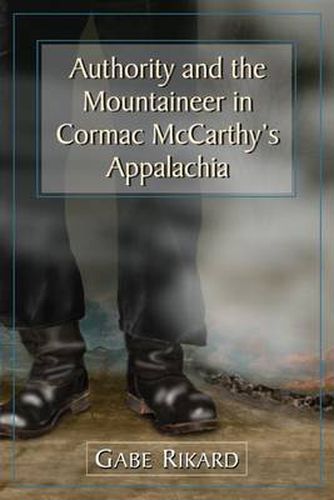Readings Newsletter
Become a Readings Member to make your shopping experience even easier.
Sign in or sign up for free!
You’re not far away from qualifying for FREE standard shipping within Australia
You’ve qualified for FREE standard shipping within Australia
The cart is loading…






The author uses Michel Foucault’s theories on power, resistance and discipline to analyse the interactions of mountaineers and the authorities who have attempted to
modernise
them. The book shows how Cormac McCarthy manipulates Appalachian regional images while simultaneously engaging in a form of archeology of Appalachian constructs. Initially grounding the analysis in American history, the book explores the interplay of the dominance/resistance duality. Rikard shows how roads provided ways into the mountains for industry and ways out for the mountaineer, how cotton mill villages and regional cities served as well-ordered,
disciplined
destinations for the Appalachian out-migrants, how McCarthy’s character Lester Ballard (Child of God) represents the epitome of hillbilly delinquency and thus presents authority with a well-honed disciplinary tool, and how the iconic image of the mountaineer - a sociopolitical and historical notion cultivated and maintained by fiction writers, benevolent organisations, and academics -
othered
the mountain people as deviants and delinquents. The book ends by considering the ways in which The Road returns to the rhetorical and geographical region of his early work, and how it fits into McCarthy’s Appalachian oeuvre.
$9.00 standard shipping within Australia
FREE standard shipping within Australia for orders over $100.00
Express & International shipping calculated at checkout
The author uses Michel Foucault’s theories on power, resistance and discipline to analyse the interactions of mountaineers and the authorities who have attempted to
modernise
them. The book shows how Cormac McCarthy manipulates Appalachian regional images while simultaneously engaging in a form of archeology of Appalachian constructs. Initially grounding the analysis in American history, the book explores the interplay of the dominance/resistance duality. Rikard shows how roads provided ways into the mountains for industry and ways out for the mountaineer, how cotton mill villages and regional cities served as well-ordered,
disciplined
destinations for the Appalachian out-migrants, how McCarthy’s character Lester Ballard (Child of God) represents the epitome of hillbilly delinquency and thus presents authority with a well-honed disciplinary tool, and how the iconic image of the mountaineer - a sociopolitical and historical notion cultivated and maintained by fiction writers, benevolent organisations, and academics -
othered
the mountain people as deviants and delinquents. The book ends by considering the ways in which The Road returns to the rhetorical and geographical region of his early work, and how it fits into McCarthy’s Appalachian oeuvre.